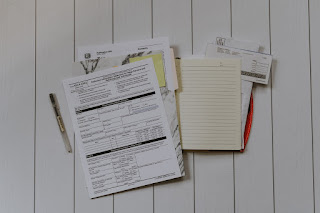5 Tax Preparation Tips Every Entrepreneur Should Know
5 Tax Preparation Tips Every Entrepreneur Should Know
. Hiring employees vs. hiring subcontractors
Your business is ready to bring on employees, but should you pay them as W-2 employees or 1099 subcontractors? It’s a good question, and one Seaman is asked a lot.
Freelancers work in their own environment and are hired on a project-by-project basis. Employees work regular hours, which are dictated by the company, and receive regular checks. If you get the two mixed up, you could be in for a big surprise, Seaman says.
“If the IRS determines the worker is an employee rather than a contractor, costly penalties are assessed and a large tax bill will result due to unpaid Social Security and Medicare taxes,” she says.
2. Keep your accounts separate
No business owner is 100 percent sure if the business will float when it firsts opens, but that’s no excuse to run your business from your personal bank account. When you start a business, get a business checking and savings account and make sure business income and expenses come out of the business account, Seaman says.
“This is a key piece of advice,” she says. “The business bank statements should be solely used for business expenses, and no personal charges or withdrawals should occur. If business and personal funds are commingled, the owner/shareholders/members could find themselves personally on the hook for business tax debts.”
3. Get your payroll straight
From income tax to Social Security, the IRS gets a little touchy if you’re not paying your dues. There are a lot of tax forms and scheduled payments that come with employees, so it’s important to understand the ins and outs of payroll, Seaman says.
“Each employee must complete a W-4 for federal withholding, and the employer must match the employee’s Social Security and Medicare payments. This money must be deposited weekly, monthly, or quarterly with the IRS,” she says.
“If the deposits are made one day late or are for an incorrect amount, hefty penalties are assessed. Unemployment returns must be paid, and states and localities that have income tax also require regular deposits and filings. W-2 and W-3 forms must be filed with the Social Security Association annually too.”
If all of that sounds like a foreign language, you’re not alone. A lot of first-time business owners go to an accountant to ensure that the proper paperwork is filed and that the government is paid on-time. Seaman suggests employing an accountant at least for the first year of operations, so you can learn the process.
4. Take a startup deduction on taxes
The expenses you rack up while preparing to start a business can be used as a tax deduction, Seaman says.
“Be sure to take the allowable deduction for a startup,” she reminds entrepreneurs. “You can deduct up to $5,000 of research and development and startup costs.”
Research and development deductions can include investigating whether or not the business idea is viable, training employees, and ordering supplies.
5. Claim depreciation
You can claim the wear and tear or deterioration of business items over time. For example, you can claim the depreciation on your business computer or the fleet of company cars.
According to the IRS, tangible items like buildings, machinery, vehicles, furniture, and equipment are depreciable. Intangible property like patents, copyrights, and software is also depreciable.
You can claim depreciation of property overtime to help your tax situation a little each year, or you can take it in one lump sum.
“You may depreciate the full value of an asset the first year,” Seaman says. “However, only do this if the business expects a profit, otherwise this will be a waste of time because no tax will be due.”
While new entrepreneurs have a lot to do, tax planning shouldn’t be overlooked. It can save you thousands of dollars in the long run.

Comments
Post a Comment